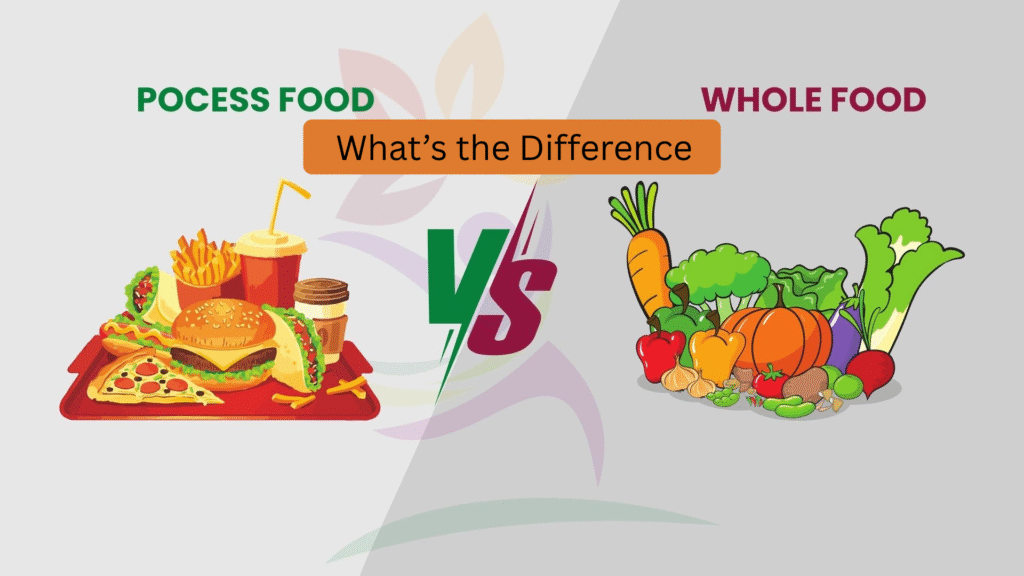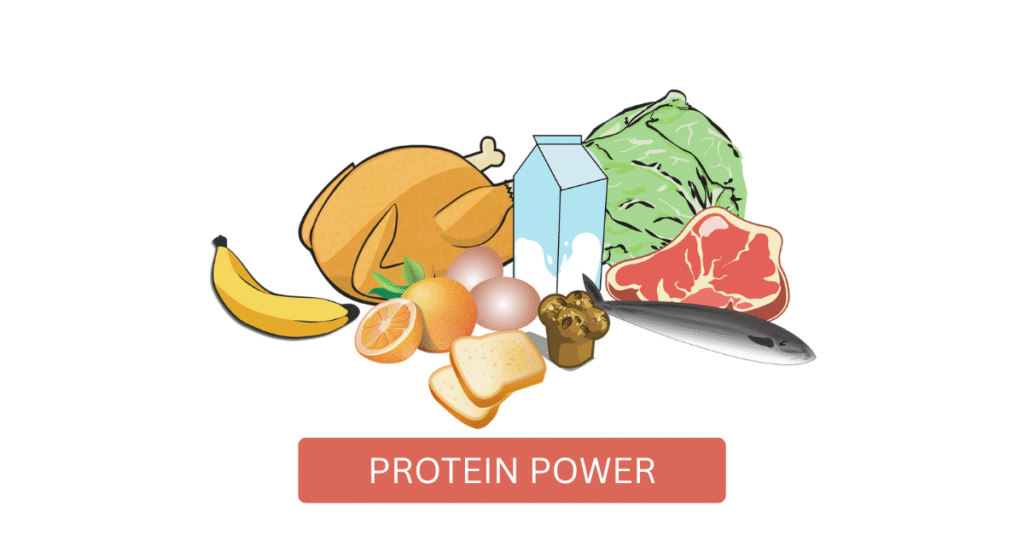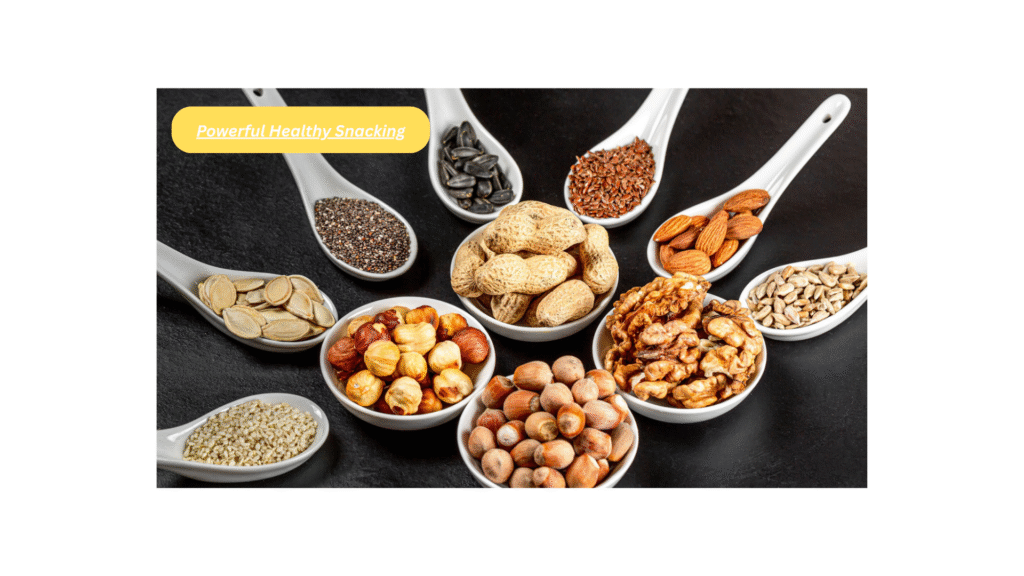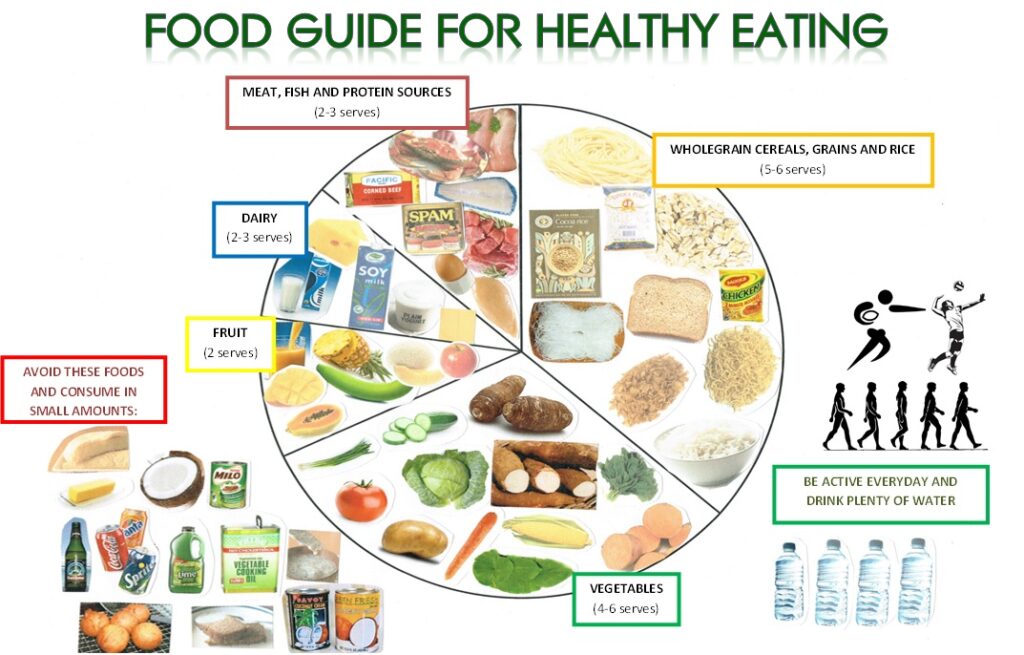
1. Introduction: Why Diet Matters for Health and Fitness
In 2025, with our fast-paced lives and ever-evolving food landscape in India, knowing what to eat to stay healthy and fit has become more important than ever. Your diet isn’t just about staying in shape; it’s the foundation of your energy, immunity, mental clarity, and long-term wellness. What you put on your plate plays a direct role in how your body performs, heals, and grows. Whether you’re a student, a working professional, or a fitness enthusiast, the right food choices can help you feel your best every day.
2. Whole Foods vs. Processed Foods: What’s the Difference?
One of the simplest ways to start eating better is to understand the difference between whole and processed foods.
Whole foods are natural and unrefined — like fresh fruits, vegetables, whole grains (like millets and brown rice), nuts, seeds, and legumes. They’re rich in nutrients and free from additives.
Processed foods, on the other hand, often contain preservatives, artificial flavors, excess salt or sugar, and unhealthy fats. Think packaged snacks, sugary drinks, and instant noodles.
If you’re serious about what to eat to stay healthy and fit, focus on eating more whole foods and minimizing highly processed ones.

3. Top Nutrient-Rich Foods to Include in Your Diet
To stay fit and energized, your body needs a variety of nutrients. Some of the top nutrient-dense foods you should be eating in India in 2025 include:
- Leafy greens like spinach (palak), fenugreek (methi), and moringa
- Seasonal fruits like papaya, banana, guava, and berries
- Whole grains like ragi, jowar, and quinoa
- Lentils and legumes like moong dal, chana, and rajma
- Nuts and seeds such as almonds, walnuts, flaxseeds, and chia
- Dairy or plant-based alternatives for calcium and probiotics
Adding these regularly to your meals is a smart way to make sure you’re eating right for your health and fitness goals.
4. Protein Power: Building Blocks for Strength and Muscle
Protein is essential for repairing tissues, building muscles, and keeping you full for longer. For anyone wondering what to eat to stay healthy and fit, prioritizing protein is a must.
Indian sources of protein include:
- Pulses and legumes (dal, chole, soybeans)
- Paneer, curd, and milk
- Eggs and chicken (if non-vegetarian)
- Tofu and tempeh (great vegan options)
- Nuts and seeds

Aim to include some protein in every meal, especially if you’re active or trying to build muscle.
5. Good Carbs vs. Bad Carbs: Choosing Wisely
Not all carbs are bad. In fact, your body needs carbs for energy — the trick is choosing the right ones.
Good carbs come from whole sources like:
- Brown rice
- Millets (bajra, ragi)
- Whole wheat
- Fruits and vegetables
Bad carbs are those found in refined sugars, white bread, and sugary drinks. They cause blood sugar spikes and crashes, leaving you tired and hungry.

When thinking about what to eat to stay healthy and fit, focus on slow-digesting, high-fiber carbs that provide lasting energy and keep you full longer.
6. Healthy Fats: Don’t Be Afraid of Fat
Gone are the days when fat was seen as the enemy. Your body actually needs healthy fats for brain function, hormone balance, and energy.
Good fat sources include:
- Desi ghee (in moderation)
- Avocados
- Coconut and olive oil
- Nuts and seeds
- Fatty fish like salmon or sardines (if you eat fish)
Avoid trans fats and limit deep-fried foods. Knowing what to eat to stay healthy and fit means not fearing fat but choosing the right kinds.
7. Hydration: The Overlooked Key to Fitness
You can eat the healthiest food in the world, but if you’re not hydrated, your body won’t function optimally. Water supports digestion, muscle function, and detoxification.
Tips for staying hydrated in India’s varying climate:
- Aim for 2.5–3 liters of water a day
- Sip coconut water or lemon water in the summer
- Drink herbal teas like tulsi or ginger tea
- Avoid too much caffeine or sugary drinks
When considering what to eat to stay healthy and fit, never underestimate the power of simple, clean water.
8. Timing Your Meals: When and How Often to Eat
When you eat matters just as much as what you eat. In 2025, with long work hours and screen time, meal timing has become inconsistent for many.
- Eat a hearty breakfast to kickstart your metabolism
- Don’t skip meals, especially lunch, to avoid energy dips
- Have light dinners, ideally by 8 PM
- Try not to snack mindlessly, and instead eat only when hungry
Aligning your meals with your activity levels and daily schedule helps your body digest and use nutrients more efficiently.

9. Foods to Avoid or Limit for Better Health
Some foods just don’t do us any favors. If you’re truly focused on what to eat to stay healthy and fit, here’s what to keep in check:
- Refined sugar (sweets, sodas, sugary cereals)
- Excess salt (chips, pickles, packaged foods)
- Deep-fried foods and junk food
- Alcohol and sugary cocktails
- Artificial sweeteners and processed snacks

You don’t have to eliminate everything forever, but moderation is key. Think of these as “occasional treats” rather than daily habits.
10. Sample Daily Meal Plan for a Healthy Lifestyle
Here’s a simple, balanced meal plan based on Indian foods to show you what to eat to stay healthy and fit:
Morning (7:30 AM):
Warm water with lemon + soaked almonds
Breakfast (8:30 AM):
Vegetable upma with a boiled egg or paneer cubes
- Herbal tea or black coffee
Mid-Morning Snack (11:00 AM):
A fruit (banana or apple) + handful of sunflower seeds
Lunch (1:00 PM):
Brown rice or roti + dal + sabzi + salad + curd
Evening Snack (4:30 PM):
Makhana or roasted chana + buttermilk
Dinner (7:30 PM):
Millet khichdi with veggies OR grilled tofu with sautéed greens
Before Bed (optional):
Warm turmeric milk or a cup of chamomile tea

